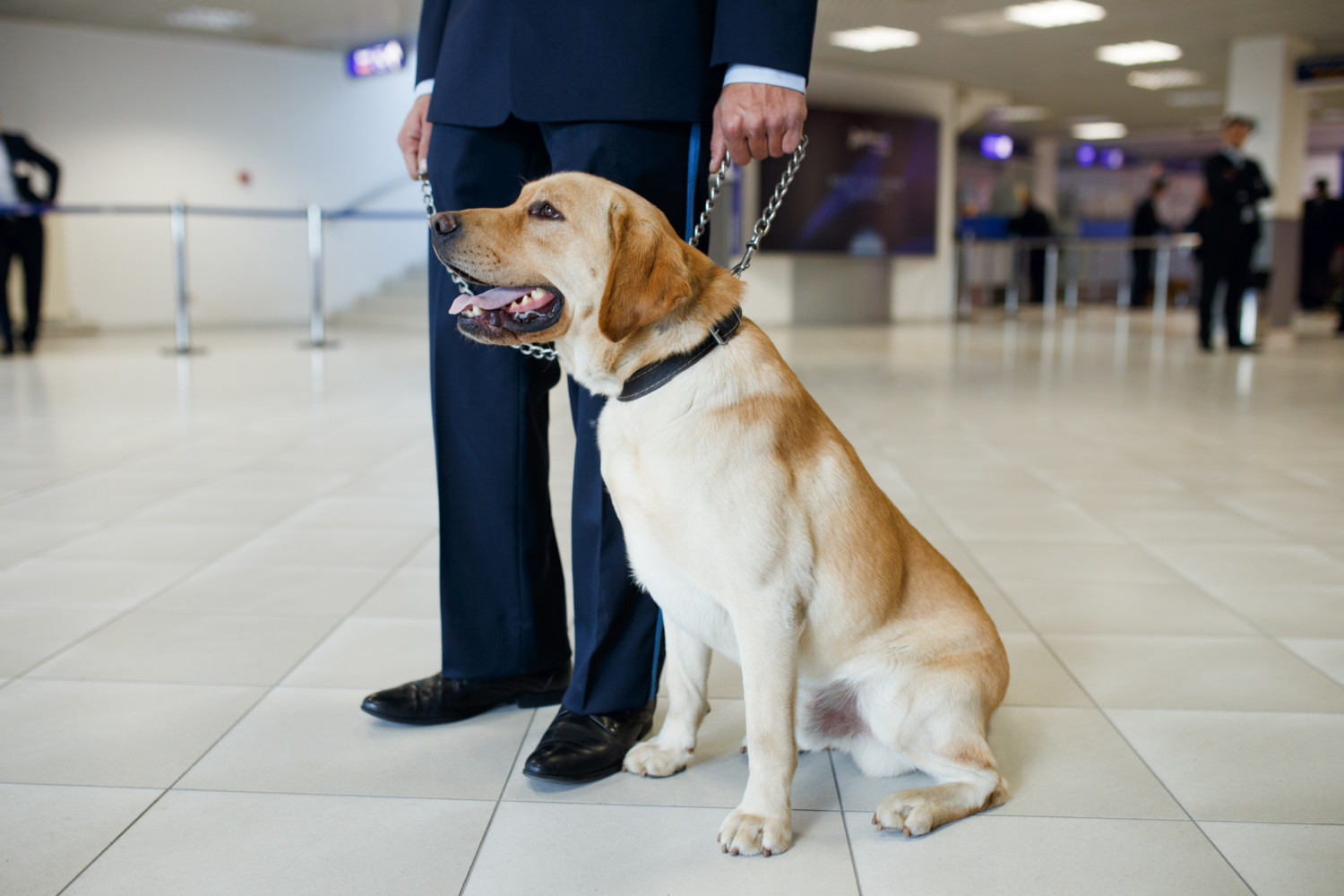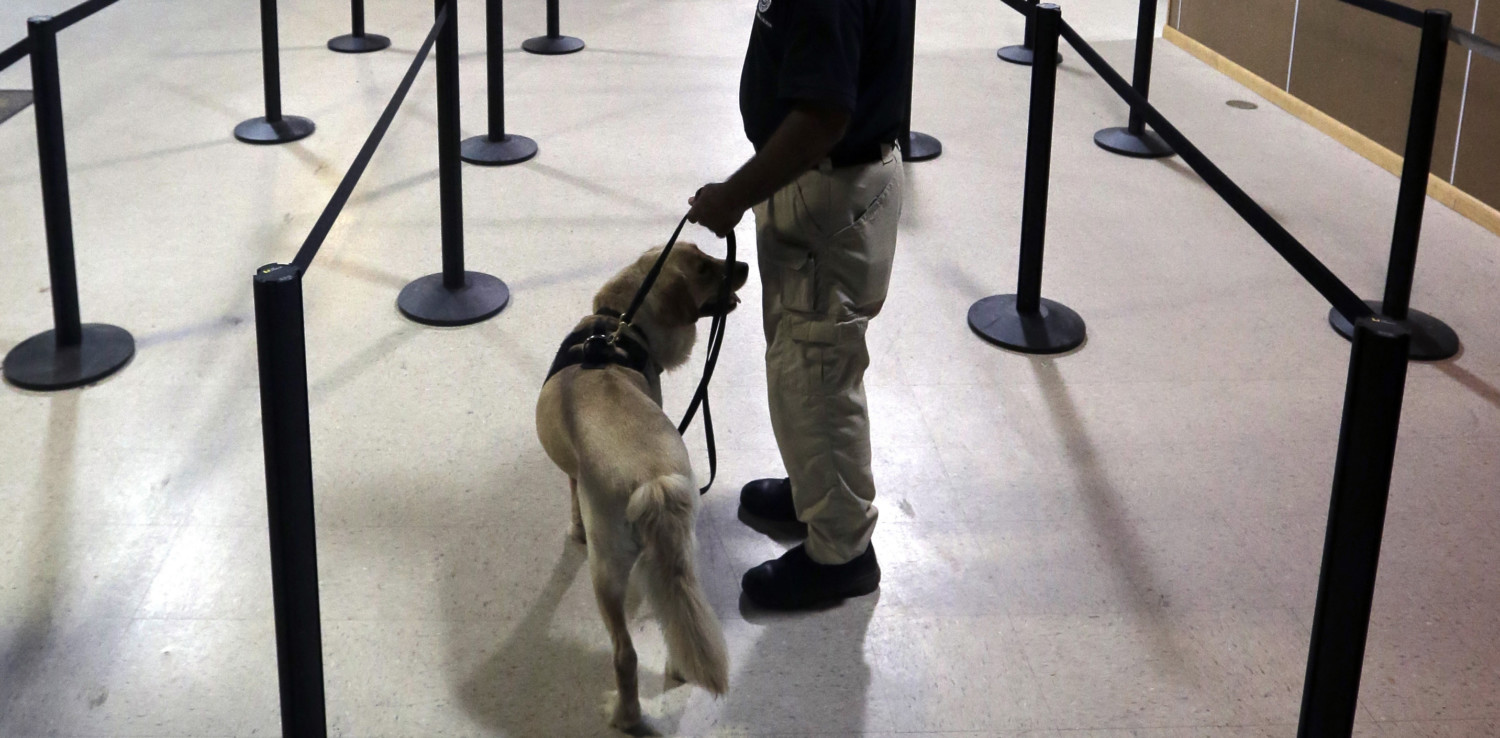There are many reasons why dogs are known as man’s best friend. Now, our canine companions could have another item on their list of accolades. Researchers in the U.K. and the U.S. are working on training dogs to spot the coronavirus using nothing more than their noses.
Sniffing Out Diseases
Dogs have up to 300 million olfactory receptors. A pooch’s sense of smell is 10,000 to 100,000 times as acute as a human’s. Knowing that some human diseases have unique odors and that canines have an extraordinary sense of smell, scientists have trained dogs to sniff out everything from cancer and Parkinson’s to malaria and bacterial infections.
Along with a charitable organization called Medical Detection Dogs, researchers from the London School of Hygiene & Tropical Medicine (LSHTM) and Durham University are working to determine whether professionals could use this practice could be used to detect COVID-19.
“In principle, we’re sure that dogs could detect COVID-19,” Dr. Claire Guest, CEO and co-founder of Medical Detection Dogs, said in a statement from LSHTM. “We are now looking into how we can safely catch the odor of the virus from patients and present it to the dogs.”
Similarly, the University of Pennsylvania’s School of Veterinary Medicine (Penn Vet) has launched a research program to train eight Labrador retrievers to detect an odor unique to SARS-CoV-2, the virus responsible for COVID-19.
A Facebook post from Medical Detection Dogs explains how the process works:
Basically, presenting saliva and urine samples from COVID-19 positive patients in a laboratory setting over several weeks in a process called odor imprinting allows the dogs to learn the odor.
How Coronavirus-Detecting Dogs Could Help
If the training is successful, the dogs could play a meaningful role in providing medical aid and decreasing the rate of COVID-19 infections. Researchers believe the dogs could quickly and accurately and screen people for testing, potentially triaging as many as 250 people per hour.
“The aim is that dogs will be able to screen anyone, including those who are asymptomatic, and tell us whether they need to be tested,” Guest stated. “This would be fast, effective and non-invasive and make sure the limited National Health Service testing resources are only used where they are really needed.”

The dogs could also reduce community spread and help lessen the chance for future outbreaks.
“The potential impact of these dogs and their capacity to detect COVID-19 could be substantial,” Cynthia Otto, professor of Working Dog Sciences and Sports Medicine and director of Penn Vet’s Working Dog Center saidin a press release. “This study will harness the dog’s extraordinary ability to support the nation’s COVID-19 surveillance systems, with the goal of reducing community spread.”
Otto explained that dogs can accurately pinpoint the presence of volatile organic compounds associated with certain diseases in blood, saliva, urine and breath, even at low concentrations.
“If the research is successful, we could use COVID-19 detection dogs at airports at the end of the epidemic to rapidly identify people carrying the virus,” Professor Steve Lindsay at Durham University told LSHTM. “This would help prevent the re-emergence of the disease after we have brought the present epidemic under control.”

If you want to help crowdfunded the LSHTM effort, you can visit the Indiegogo page here. Researchers estimate the dogs could be ready to begin working within six weeks.
This story originally appeared on Simplemost. Checkout Simplemost for additional stories.


